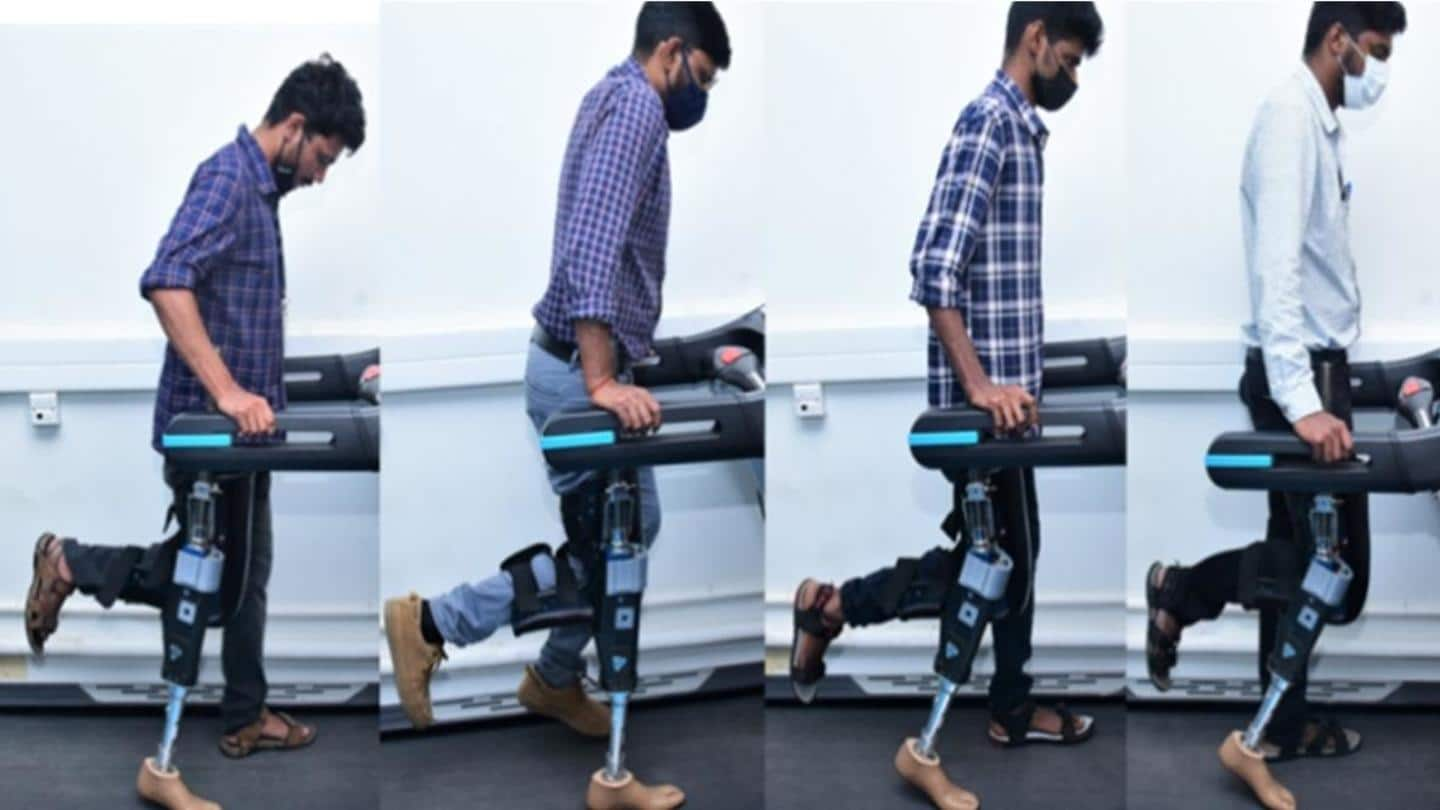
ISRO uses space tech to develop chip-controlled artificial limb
What's the story
The Indian Space Research Organisation's (ISRO) prowess does not just lie in making cutting-edge space technology.
It can also use the same to develop an artificial limb that can help above-knee amputees to walk comfortably.
This new intelligent tech is known as 'micro-processor controlled knees' (MPKs). It is expected to be 10 times cheaper than its competitors in India.
Context
Why does this story matter?
India's space agency is known worldwide for building cheap spacecraft. Soon enough, the same agency will be known for the cheapest prosthetic knees.
The cheap MPK that is being developed by ISRO is a prime example of how a country's growth in space technology can be helpful in other areas.
This gives ISRO an opportunity to raise its own funds as well.
Smart limb
MPKs help amputees walk with comfortable gait
The smart MPKs can offer above-knee amputees extended capabilities than those offered by passive limbs without microprocessors. They permit walking with a comfortable gait.
These smart limbs are being developed by ISRO's Vikram Sarabhai Space Centre under an MoU with the National Institute for Locomotor Disabilities, Pt. Deendayal Upadhyaya National Institute for Persons with Physical Disabilities, and the Artificial Limb Manufacturing Corporation of India.
Mechanism
How does it work?
An MPK has a microprocessor, hydraulic damper, load and knee angle sensors, composite knee-case, Li-ion battery, and interface elements.
Based on the sensor data, the microprocessor determines the state of gait. The hydraulic damper helps in attaining the desired gait by changing the stiffness of the system.
Specific walking parameters can be set using PC-based software. The interface plots the parameters in real-time.
Walking trials
Amputee walked around 100m with minimum support
Walking trials were first conducted with non-amputees with the help of a specially designed exo-socket.
After getting clearance from the Joint Project Monitoring Committee (JPMC), the device was tested with an amputee identified by National Institute For Locomotor Disabilities (NILD).
Initial trials were conducted with the help of parallel bars. Later, the amputee could walk around 100m in the corridors with minimum support.
Future
ISRO plans to commercialize the smart limbs
ISRO aims to commercialize MPKs. In India, depending on the complexity and functionality, other artificial limbs cost between Rs. 10 lakh and Rs. 60 lakh.
The space agency's products are expected to cost between Rs. 4 lakh and Rs. 6 lakh. The MPKs are still being optimized.
Once they are fully developed, amputees will be able to walk through uneven terrains with advanced features.